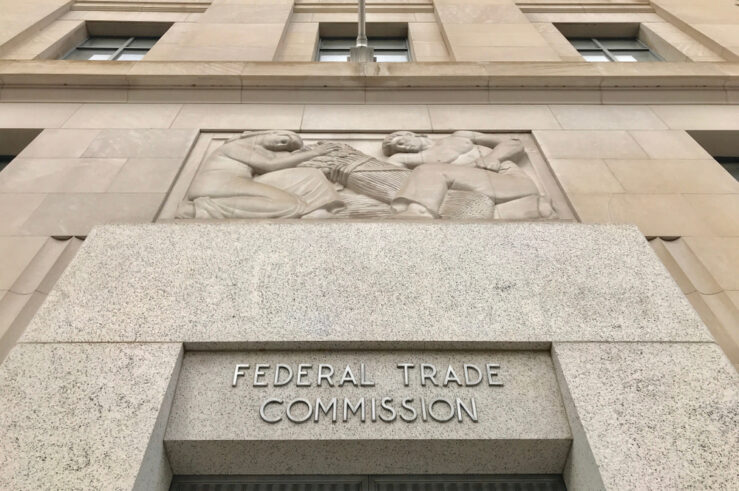Showing archive for: “FTC Act”
7 Top Takeaways from the 2nd Annual Mercatus Antitrust Forum
At the Jan. 26 Policy in Transition forum—the Mercatus Center at George Mason University’s second annual antitrust forum—various former and current antitrust practitioners, scholars, judges, and agency officials held forth on the near-term prospects for the neo-Brandeisian experiment undertaken in recent years by both the Federal Trade Commission (FTC) and the U.S. Justice Department (DOJ). ... 7 Top Takeaways from the 2nd Annual Mercatus Antitrust Forum
Biweekly FTC Roundup: A Guide for the Perplexed Edition
In a prior post, I made the important if wholly unoriginal point that the Federal Trade Commission’s (FTC) recent policy statement regarding unfair methods of competition (UMC)—perhaps a form of “soft law”—has neither legal force nor precedential value. Gus Hurwitz offers a more thorough discussion of the issue here. But policy statements may still have ... Biweekly FTC Roundup: A Guide for the Perplexed Edition
Biweekly FTC Roundup: Highly Skilled Sandwich Maker Edition
Happy New Year? Right, Happy New Year! The big news from the Federal Trade Commission (FTC) is all about noncompetes. From what were once the realms of labor and contract law, noncompetes are terms in employment contracts that limit in various ways the ability of an employee to work at a competing firm after separation ... Biweekly FTC Roundup: Highly Skilled Sandwich Maker Edition
The FTC’s NPRM on Noncompete Clauses: Flirting with Institutional Crisis
The Federal Trade Commission’s (FTC) Jan. 5 “Notice of Proposed Rulemaking on Non-Compete Clauses” (NPRMNCC) is the first substantive FTC Act Section 6(g) “unfair methods of competition” rulemaking initiative following the release of the FTC’s November 2022 Section 5 Unfair Methods of Competition Policy Statement. Any final rule based on the NPRMNCC stands virtually no ... The FTC’s NPRM on Noncompete Clauses: Flirting with Institutional Crisis
FTC Proposes Rule Deeming Non-Compete Clauses to be Unfair Methods of Competition
On Jan. 5, 2023, the Federal Trade Commission (FTC) issued a Notice of Proposed Rulemaking (NPRM) to prohibit employers from entering non-compete clauses with workers.[1] The proposed rule would extend to all workers, whether paid or unpaid, and would require companies to rescind existing non-compete agreements within 180 days of publication of the final rule.[2] ... FTC Proposes Rule Deeming Non-Compete Clauses to be Unfair Methods of Competition
The FTC’s UMC Statement Creates a Target for Federal Courts
The Federal Trade Commission’s (FTC) recently released Policy Statement on unfair methods of competition (UMC) has a number of profound problems, which I will detail below. But first, some praise: if the FTC does indeed plan to bring many lawsuits challenging conduct as a standalone UMC (I am dubious it will), then the public ought ... The FTC’s UMC Statement Creates a Target for Federal Courts
The New FTC Section 5 Policy Statement: Full of Sound and Fury, Signifying Nothing?
The Federal Trade Commission’s (FTC) Nov. 10 Policy Statement Regarding the Scope of Unfair Methods of Competition Under Section 5 of the Federal Trade Commission Act—adopted by a 3-1 vote, with Commissioner Christine Wilson issuing a dissenting statement—holds out the prospect of dramatic new enforcement initiatives going far beyond anything the FTC has done in ... The New FTC Section 5 Policy Statement: Full of Sound and Fury, Signifying Nothing?
FTC Section 5 Statement: Less Guidance Than Meets the Eye
On Nov. 10, the Federal Trade Commission (FTC) issued a new statement explaining how it will exercise its standalone FTC Act Section 5 authority. Despite the length of the statement and the accompanying commentaries from most of the commissioners, there is less guidance than one might expect from so many words. One thing is clear, ... FTC Section 5 Statement: Less Guidance Than Meets the Eye
Biweekly FTC Roundup: Commissioners Bite Horse Edition
The massive New Deal sculptures that frame Federal Trade Commission headquarters are both called “Man Controlling Trade.” And according to the Commission’s new Policy Statement Regarding Unfair Methods of Competition Under Section 5 of the Federal Trade Commission Act, “Three Commissioners Controlling the Economy” appears to now be one of the agency’s guiding principles. The ... Biweekly FTC Roundup: Commissioners Bite Horse Edition
Lina Khan’s Christmas Wish Is To Have Margrethe Vestager’s Powers
Federal Trade Commission (FTC) Chair Lina Khan has just sent her holiday wishlist to Santa Claus. It comes in the form of a policy statement on unfair methods of competition (UMC) that the FTC approved last week by a 3-1 vote. If there’s anything to be gleaned from the document, it’s that Khan and the ... Lina Khan’s Christmas Wish Is To Have Margrethe Vestager’s Powers
The End of Reason at the FTC
In a 3-2 July 2021 vote, the Federal Trade Commission (FTC) rescinded the nuanced statement it had issued in 2015 concerning the scope of unfair methods of competition under Section 5 of the FTC Act. At the same time, the FTC rejected the applicability of the balancing test set forth in the rule of reason ... The End of Reason at the FTC
Noah Phillips’ Major Contribution to IP-Antitrust Law: The 1-800 Contacts Case
Recently departed Federal Trade Commission (FTC) Commissioner Noah Phillips has been rightly praised as “a powerful voice during his four-year tenure at the FTC, advocating for rational antitrust enforcement and against populist antitrust that derails the fair yet disruptive process of competition.” The FTC will miss his trenchant analysis and collegiality, now that he has ... Noah Phillips’ Major Contribution to IP-Antitrust Law: The <em>1-800 Contacts</em> Case
















